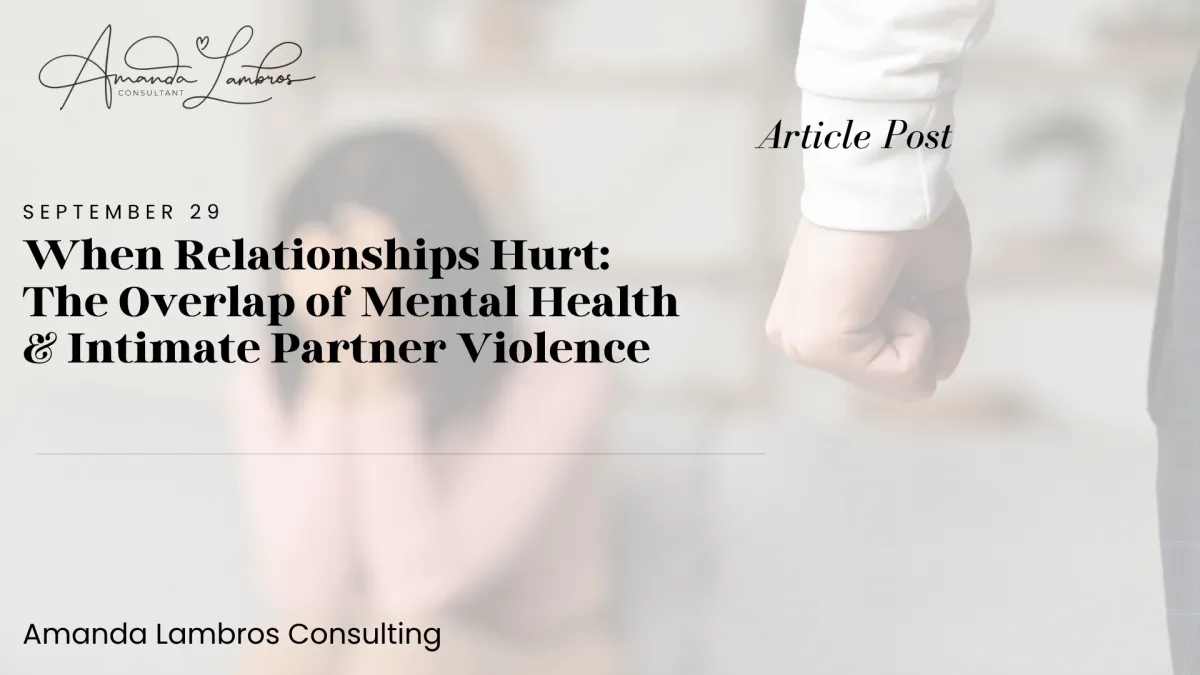
When Relationships Hurt: The Overlap of Mental Health and Intimate Partner Violence
A new report from the Australian Institute of Family Studies has revealed a confronting trend: an increasing number of men are disclosing emotional or physical abuse toward their partners. For many, this is a sobering reminder that the challenges we face in our intimate relationships don’t just stay behind closed doors, they ripple into every aspect of our lives, including our mental health.
The Hidden Connection
Relationships are one of the greatest protectors of mental health, but they can also be a source of deep harm. Emotional abuse, coercion, or ongoing conflict erode self-worth, increase anxiety and depression, and can leave lasting scars. When left unaddressed, the cycle is often repeated, creating patterns that impact children, families, and communities.
On the other side, untreated mental health challenges, whether stress, trauma, or substance misuse, can fuel relational breakdown, leading to frustration, poor communication, and sometimes aggression. The overlap is undeniable: relationship health and mental health are deeply entwined.
Why This Matters Now
With cost-of-living pressures mounting, access to mental health support shrinking (like the recent closures of psychology clinics), and stigma still present, more people are slipping through the cracks. And when we don’t invest in prevention, the results show up in the most intimate spaces: our partnerships, our homes, and our families.
This isn’t just a “private issue”, it’s a public health issue. Safe, respectful relationships foster resilience. Toxic or violent ones can unravel wellbeing at every level.
Building Safer, Healthier Relationships
So, what can we do?
Prioritise prevention: Early conversations about respect, emotional regulation, and healthy communication need to happen in schools, workplaces, and homes.
Reduce stigma: Seeking relationship therapy or mental health support should be seen as a strength, not a weakness.
Support access: Communities and governments must work to ensure people can reach services without financial or geographical barriers.
Check in often: Sometimes the simplest step, asking a friend or colleague how they’re really doing, can be a circuit breaker.
The Takeaway
Healthy relationships don’t just “happen.” They are built, nurtured, and supported. When we ignore the intersection between mental health and relational wellbeing, we miss the opportunity to create stronger families and safer communities.
This latest report is a reminder: if we want to improve mental health outcomes in Australia, we cannot separate them from the quality and safety of our relationships.
Question: How do you think workplaces, communities, or families can better support both mental health and healthy relationships?


